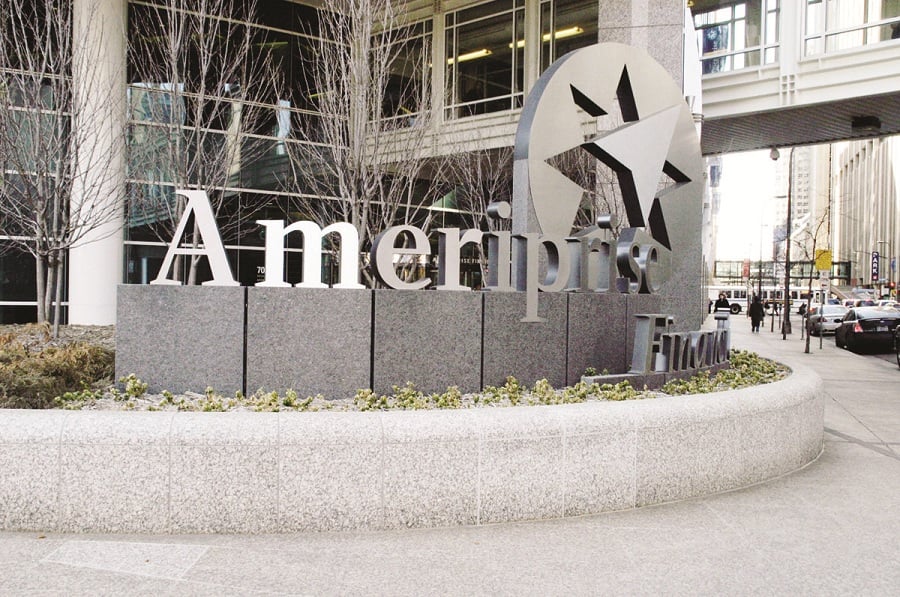In contrast to a couple of its most prominent competitors, Ameriprise Financial Inc. will stick with paying commissions to its brokers and advisers when working with clients' retirement accounts under the new Department of Labor fiduciary rule.
Earlier this week, Commonwealth Financial Network, a leading independent broker-dealer, said it would stop offering commission-based products in individual retirement accounts and qualified retirement plans, making it the latest broker-dealer to move more decidedly toward a fee-based advisory platform to avoid what some see as the more onerous provisions of the Labor Department's fiduciary rule.
Commonwealth's move comes on the heels of Merrill Lynch's
announcement that it will no longer offer new, adviser commission-based IRAs starting next April.
In moving to fee-based IRA accounts, firms are actively avoiding a provision of the rule known as the best-interest contract exemption (BICE), an exception to the rule that will allow brokers to continue selling products via commission if they comply with certain rule requirements.
On a conference call to investors Wednesday morning, Ameriprise CEO and chairman Jim Cracchiolo said he did not want to comment on his competitors' plans. He stressed, however, that the BICE would be used by Ameriprise in the future as long as the company remains compliant.
He has previously said that the company, which has 9,747 brokers and advisers, can still operate appropriately under the BICE.
“Implementing and executing against the BICE does require the firm to put more resources to insure there is a greater level of support, compliance, changes to products and platforms for the advisers and their training,” Mr. Cracchiolo said. “An easier way for us to do it would have been to say we are not going to support that and get out. It would be a lot more efficient for the firm and we would make a lot more money.”
“On the other side," he said "some of those clients would not be served as well and the adviser's book [of business] would not be as complete for them,” he said. “We do feel we want to help our advisers as best as we can. We will continue to help our advisers do more advisory business. Remember 70% of our [wealth management] business – its total [revenue] – is in fee-based businesses, through our financial planning activities and our wrap businesses, and others.”
“We still feel we want to provide the support necessary for our advisers so that they do not disrupt their client activities or have the clients pay more for accounts and products that they were already offered,” Mr. Cracchiolo said. “We think we can be in compliance. If we can't, we won't do it but we feel we can be in compliance and where we can't we will trim the level of activity.”
The DOL fiduciary rule will likely cause Ameriprise to “narrow” its platform of investment products for its advisers and also to focus the firm on training advisers to work under the new rule, he said.
Meanwhile, Ameriprise Financial Inc. spent $7 million during the third quarter to prepare for the Department of Labor's new fiduciary standard rule for retirement accounts, pushing this year's total spending on the regulation to nearly $19 million.
In its earnings release Tuesday afternoon, Ameriprise reported that its results for the quarter “included $7 million in incremental expenses related to the planning and implementation of the Department of Labor's fiduciary standard.”
It was the second consecutive quarter Ameriprise has reported a $7 million expense resulting from the DOL's new rule. During a first-quarter earnings call, the firm's chief financial officer, Walter Berman, indicated Ameriprise spent an additional $4 million to $5 million on DOL-related items.







